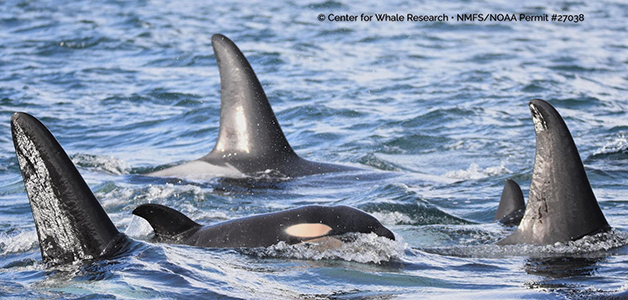||| FROM BOB DISTLER |||
Today’s Riddle:
What costs $3.50 in Anacortes, $4.50 in Friday Harbor, and $5.50 in Eastsound?
Guess!
It’s one gallon of regular gasoline; but why?
**If you are reading theOrcasonian for free, thank your fellow islanders. If you would like to support theOrcasonian CLICK HERE to set your modestly-priced, voluntary subscription. Otherwise, no worries; we’re happy to share with you.**









I told my girlfriend that she is much smarter than me.
She said, “I’m not even going to take that as a compliment.”
I had to use 60 characters to ask the question. Why?
For those interested in facts and data, consider the following and draw your own conclusions.
According to the the Energy Information Administration (www.eia.gov) the average retail cost of regular unleaded gasoline in Washington state in May 2020 was $2.34 The most recent report showed the price at $4.54, down from a recent peak of $5.01 in September 2023. This massive increase would have been greater if the current administration had not dumped the Strategic Petroleum Reserve into the market in an attempt to restrain price increases.
While bls.gov concocts highly misleading “inflation” data for the public, those who live in the real world know that the real costs of basic necessities like food and fuel have essentially doubled in the past four years.
So that, combined with the expense of trucking fuel by barge, accounts for most, but not all of the increase. It is kind of surprising that Orcas Island fuel prices are higher than Hawaii despite the fact that we are located less than 50 miles from four major refineries. Hawaii has no refineries.
There is also the impact of the 2021 Climate Commitment Act (CCA), which Governor Jay Inslee considers to be the centerpiece of his legacy. That adds $0.50 per gallon, more for diesel. This cap-and-trade system, which is subject to arbitrage, is an incredibly regressive tax (even though the state calls it a “compliance fee”) that directly hurts those least able to afford it. It is also a huge burden for any small business that needs to move people or goods.
The CCA mandates that the Department of Ecology provide annual reports on the disbursement of funds collected under the CCA. This they have failed to do and now say the first report will be delayed until September 2025. Meanwhile, Mr. Inslee has promoted various gauzy targets for his largesse, with vague categories such as “environmental justice,” “green jobs,” and “community planning for climate change”. In other words, a $2 billion slush fund to be laundered from your savings to an unknown variety of politically-favored “activist” entities without any meaningful oversight. There was not a single mention of any assistance to small businesses adversely affected by the CCA tax. He did throw an insulting $200 bone to the working class with his heating fuel voucher scheme.
The rate of Covid 19 relief fund fraud in Washington State was among the highest in the nation.
Initiative 2117 provides voters with an opportunity to repeal the CCA. It certainly has not achieved any goal other than to enrich speculators and line the pockets of various consultants and public employees.
Thank you. In spite of your thoughtful comments Scott, it has come to my attention that the San Juan Democratic Party is giving a thumbs down (a no vote) to the following state initiatives (including I-2117), and for some of the same reasons that you cite. One can also read more about this in their voters pamphlet. It can’t be both ways… who’s calling it correctly?
From the SJC Democrats–
Each of the four initiatives is citizen-initiated, primarily sponsored, financed, and supported by various conservative legislators, businesses and individuals. If approved in November, each initiative would weaken or annul various progressive legislations previously approved by the Washington State legislature. A simple majority is required for approval of each.
The four initiatives are:
1) Initiative 2066, Natural Gas Policies Measure.
If approved, this measure would require utilities and local governments to provide natural gas to eligible customers; prevent state approval of rate plans requiring or incentivizing gas service termination, restricting access to gas service, or making it cost-prohibitive; and prohibit the state energy code, localities, and air pollution control agencies from penalizing gas use. It would repeal sections of chapter 351, Laws of 2024, including planning requirements for cost-effective electrification and prohibitions on gas rebates and incentives.
More details found at https://www.nwprogressive.org/weblog/2024/07/initiative-2066-putting-washingtonians-at-risk-of-higher-energy-prices-gets-certified.html
2) Initiative 2109, Repeal Capital Gains Tax.
If approved, this measure would repeal an existing excise tax on the sale and exchange of certain long-term capital assets, not including real estate and retirement accounts, by individuals who have annual capital gains in excess of $250,000. The Washington State Supreme Court has ruled that this excise tax does not violate the state constitution. Only 4,000 individuals paid this tax in 2023. Repeal of the tax would reduce existing funding for K-12 education, higher education, school construction, early learning, and childcare.
More details found at https://www.no2109.org/
3) Initiative 2117, Prohibit Carbon Tax Credit Trading and Repeal Carbon Cap-and-Invest Program.
If approved, this measure would prohibit state agencies from imposing any type of carbon tax credit trading, and repeal legislation establishing a cap and invest program to reduce greenhouse gas emissions. It would also decrease funding for investments in transportation, clean air, renewable energy, conservation, and emissions-reduction.
More details at https://no2117.com
4) Initiative 2124, Opt-Out of Long-Term Services Insurance Program Initiative.
If approved, this measure would amend state law establishing a state long-term care insurance program to provide that employees and self-employed people must elect to keep coverage under RCW 50B.04, allow employees to opt-out of coverage under RCW 50B.04 at any time, and repeal a current law governing exemptions for employees who had purchased long-term care insurance before November 1, 2021.
More details at https://www.noon2124.org
Additional information about these initiatives can be found at various online sites including:
1) Ballotpedia at https://ballotpedia.org/Washington_elections,_2024
2) The Progressive Voters Guide of Fuse Washington at https://progressivevotersguide.com/washington/
Ah, let’s see, hmmm…Because you forgot to buy an Electric Vehicle?
Well, folks, I began with my email questioning why gas costs more on Orcas than in Friday Harbor, not to mention Anacortes. All the rhetoric about I-2117 and its proposed carbon tax repeal, which by the way, will further weaken funding for our ferry system, has nothing to do with my observation.
Yes, lots of things do cost more in the San Juans, but that can’t explain the one-dollar premium for gasoline in Eastsound.